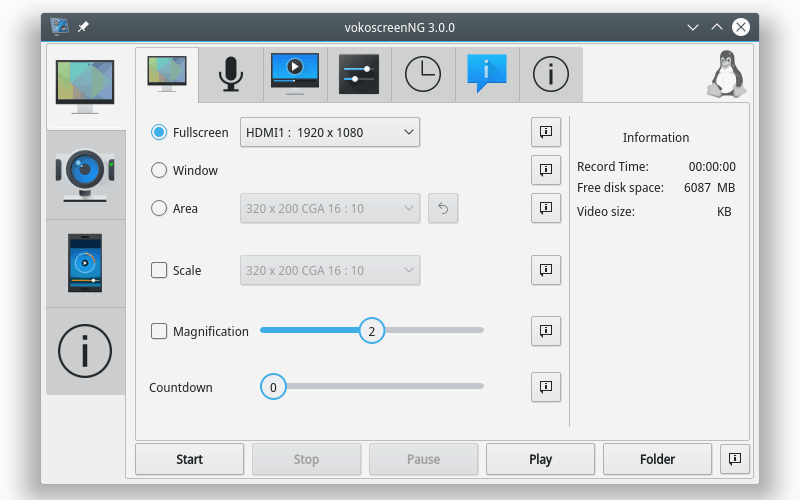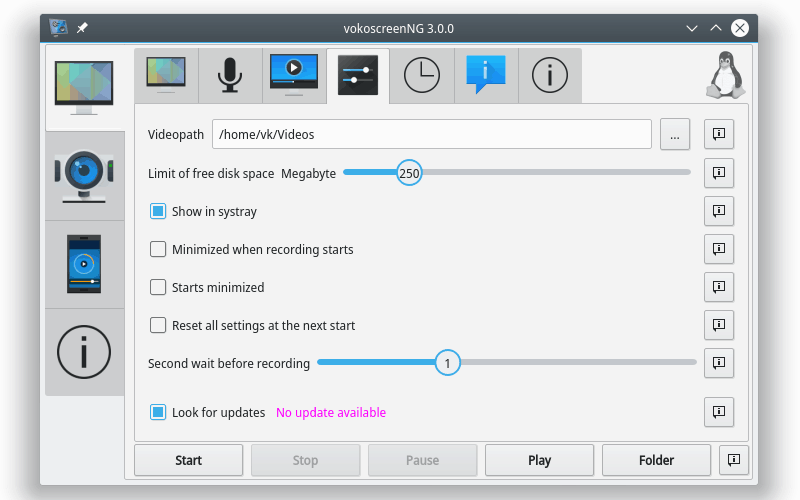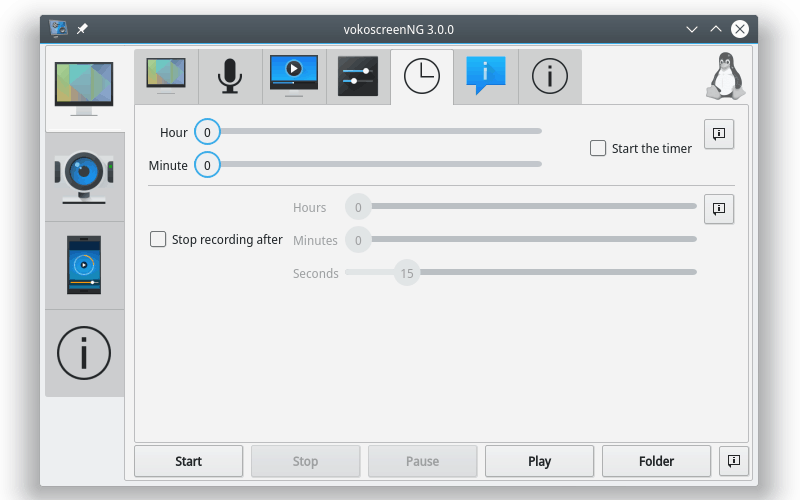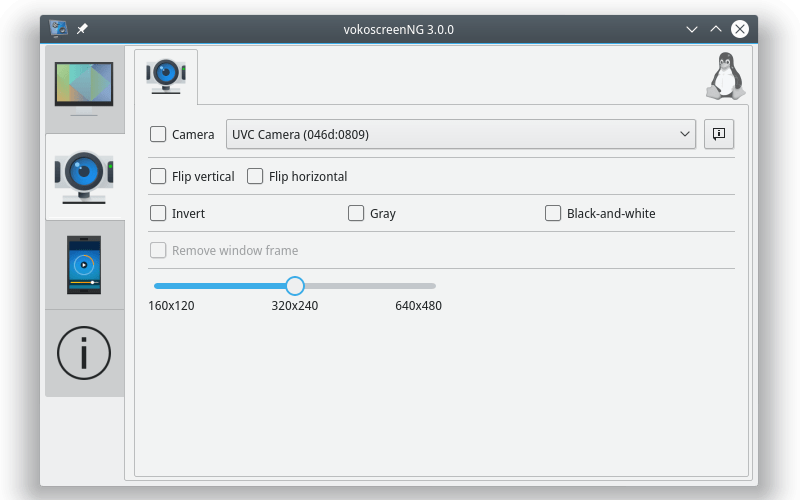
Vokoscreen was one of the best screen recording software for Linux. Despite its rather ‘outdated looking’ interface, it had a decent userbase.
For some time, vokoscreen didn’t see updates and eventually it was discontinued.
The good news is that vokoscreen is not entirely dead. It’s reborn as vokoscreenNG.

The NG in vokoscreenNG stands for New Generation and rightly so because it’s been created from scratch using Qt and Gstreamer.
It is available for both Linux and Windows.
Features of VokoscreenNG
VokoscreenNG has all the standard features you would expect in an standard screen recording tool.

You can record the entire desktop, a specific area or a specific application window. You can zoom in, add a delay before starting the recording.
You can choose the output video format, codec (like x264), frame rates and other such parameters.

You can also limit the disk space usage or set a fixed time duration for the recordings.

You can also record the webcam (if you were having a video-conference).
There are more features that you can explore while using VokoscreenNG.
Installing VokoscreenNG on Linux
VokoscreenNG is under active development and doesn’t have DEB packages at the time of writing this article. AppImage and other packages are in pipeline.
At present, you can install it on Fedora using the following command:
sudo dnf install vokoscreenNGOn openSUSE, you can use:
sudo zypper install vokoscreenNGFor Ubuntu and other Ubuntu-based distributions, you can use an unofficial PPA created by Jim of Ubuntu Handbook.
sudo add-apt-repository ppa:ubuntuhandbook1/apps
sudo apt update
sudo apt install vokoscreen-ngLearn more about using PPA. You should also know how to remove applications installed via PPA.
For other distributions, you’ll have to install it from source code which I don’t recommend specially when you are a regular user. Wait for some time and you should have ‘easy to install’ packages available. Till then use Kazam or SimpleScreenRecorder for this purpose.
Wrapping up…
Vokoscreen was a popular tool 6-7 years back. I am glad to see that it is reincarnated into vokoscreenNG and is being actively developed now.
Have you used vokoscreenNG already? If yes, how’s your experience with it? If not, will you be giving it a try? Do share your views in the comment section.

